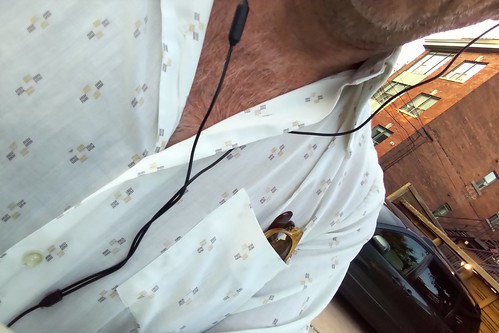For the last while, as I’ve carved out time to learn more guitar here and there (believe me, this is tough as it is), I’ve felt drawn to the need to learn more about theory. By theory, I mean musical theory specific to navigating guitar, which is quite concrete and not as “theoretical” as it may sound to anyone unaccustomed to the term. In other words, from a structural perspective, how might a guitarist understand the greater relationship between strings, frets, notes, chords and modes? The hope, not unlike consulting a grimoire, was that this might allow me a key to understanding music, structurally and compositionally, and that it might make my relationship with guitar easier.
The reality is that learning theory, for me at least, is a slog. My guitar teacher used to avoid getting into the weeds of teaching theory because he felt that it was too easy for the student to lose interest — and he’s not wrong! Not unlike mathematics, it’s dry, with rules that are seemingly arbitrary. And an entire lexicon (“Here’s a Lydian riff in F”) that, unless you are truly dedicated to learning, so easily leaks from your ears the minute you put your guitar down. And yet, while my teacher would say this in one breath it wouldn’t stop him from commenting on the arcane ways in which whatever song we were playing was structured. Why, I thought, are you dangling this thing in front of me while informing me that it was hard to teach? I thought “feel” was hard to teach.
And to make my frustration solidified, this year in particular I happened to have at least two people — both of them musicians and one of them a guitar instructor — upon hearing that I was studying theory, simply ask: why? They seemed sort of dumbfounded, to be honest. Why not, was the implication, just learn [song] and have a good time? Theory was useful if I was hoping to do arrangements, a friend told me, but otherwise wouldn’t have many practical applications for the average musician who simply wanted to play.
I took this to heart, and put my theory-driven interests aside. The book I’d bought and was woodsheding my way through, Lee Nichols’ Music Theory for Guitarists, was left untouched on my desk, as I sought to learn guitar from an organic perspective — that is, by figuring out songs on the fretboard and generally relying on my curiosity. But when I went back to a YouTube video spotlighting the work of blues guitarist Willie Johnson recently, specifically his work on the Howlin’ Wolf track Mr. Highway Man (which is honestly one of the best guitar solos ever), I was once again confronted with theory-talk. “If you can play the G9th chords and the G6th chords…”and I’m like SHUT UP! I DON’T KNOW WHAT THOSE EVEN ARE!
And here’s perhaps the crux of my frustration, where I feel ground down between those who casually attempt to explain/demonstrate what a musician is doing via theory (because, honestly, why not?) and those who downplay this approach in favour of, say, finding the tabs for whatever it is you’re trying to figure out and going from there. I think it’s also complicated by the fact that it’s easy (for some) to talk about a musician’s approach from a theory perspective, which ends up making it sound, from my perspective at least, as if everyone who has come before them (and me) MUST have known theory. Right? Willie Johnson OBVIOUSLY must’ve been a keen observer of music theory. As well as Link Wray. And Pat Hare. And hey, maybe they were. I don’t mean to suggest that they shouldn’t be afforded that benefit of the doubt, but I guess where I’m coming from is that it’s easy, after the fact, when someone is describing a musician’s playing through the lens of theory, to assume that the musician in question would’ve approached it the same way (theory-driven), as opposed to something more organic (“Hey, I like how this chord shape sounds when we’re playing an uptempo boogie.”).
Anyways, welcome to the way my brain works, and the crap I quietly wrestle with. I hope I’m not the only one who struggles with things like this.




